In 2017, Dr Mohamed Abdukadir Kalif made a decision that surprised many: after completing his optometry studies in Pakistan, he returned home to Somalia — a country grappling with insecurity, fragile infrastructure and chronic underinvestment in healthcare. He could have pursued a comfortable career in the Gulf but instead chose to go where help was needed most. “I wanted to make real change where it was needed most,” he says simply.
Based in Mogadishu, Dr Kalif leads a life of tireless dedication. Each afternoon, he treats patients in his private clinic, offering essential eye care in a setting where such services are scarce. He also teaches at the only optometry faculty in southern and central Somalia—home to the majority of the country’s population.
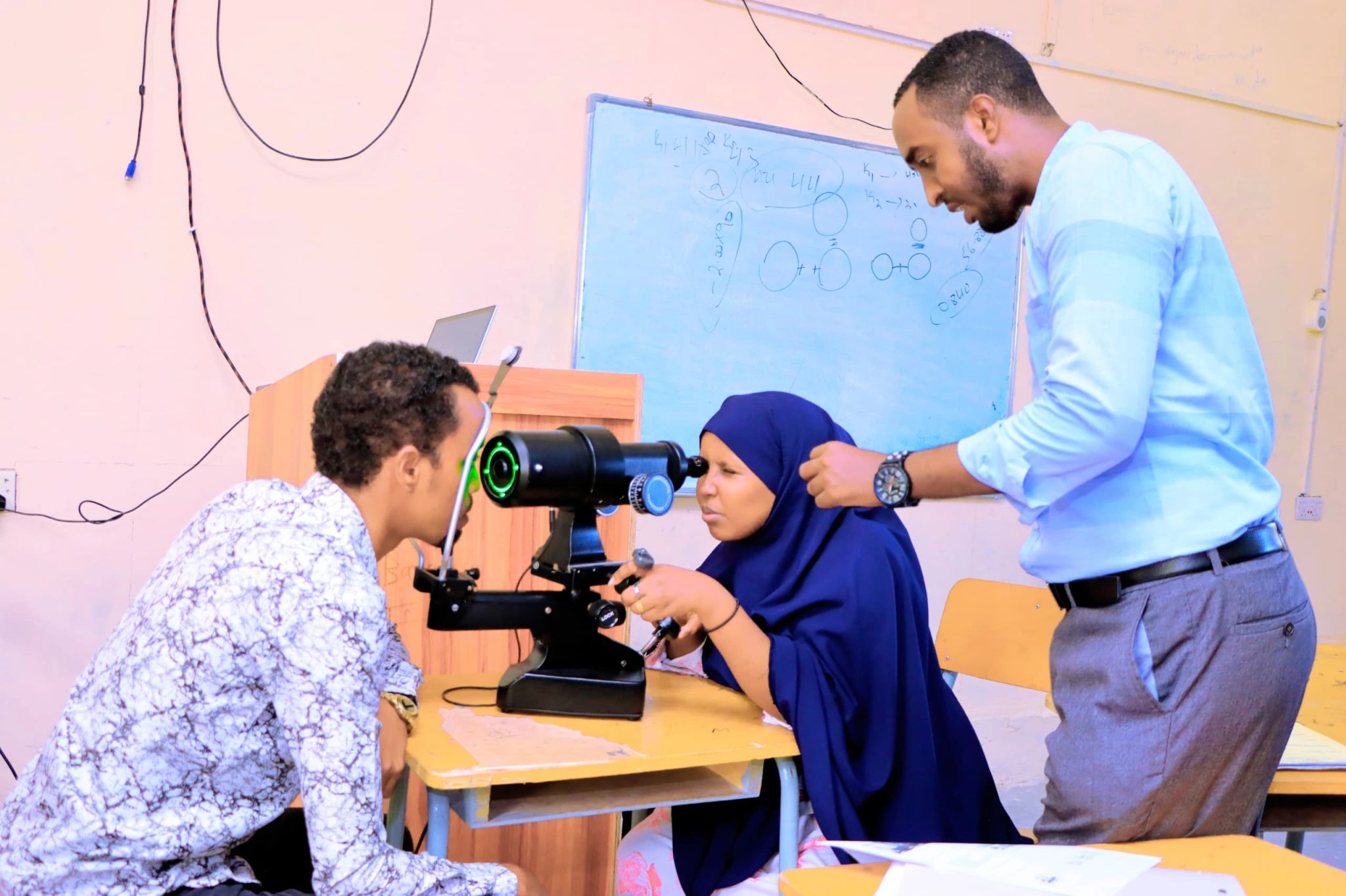
In addition, he is the Project Manager of Charity Vision Somalia, overseeing the country’s first free comprehensive vision eye care center. And every Friday, he travels 30 kilometers outside the capital to run eye camps, providing checkups for villages who, in many cases, have never had their eyes examined in their lives.
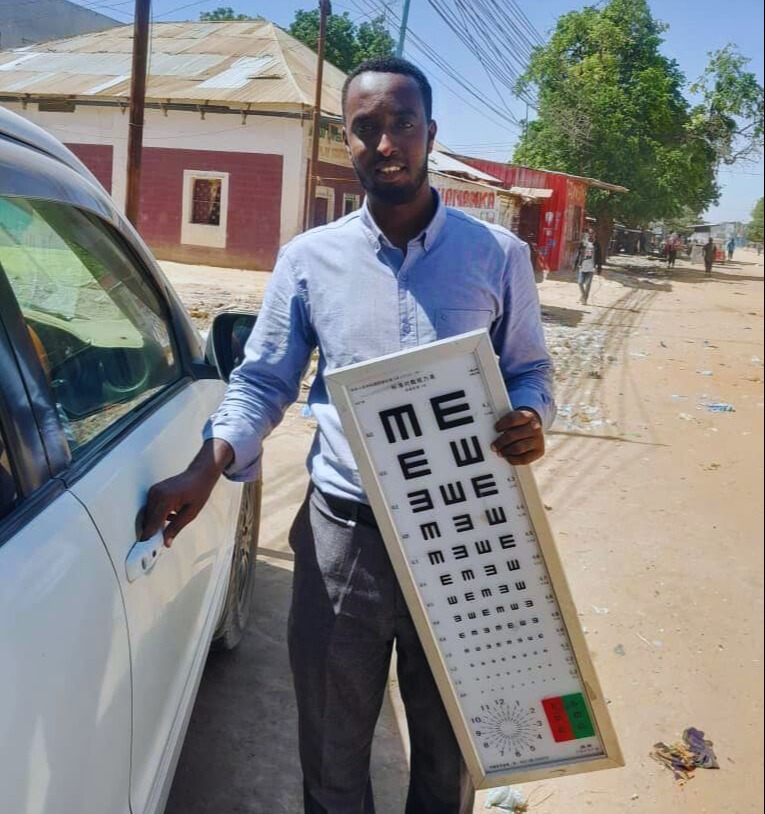
Dr Kalif’s commitment is deeply personal. In the early 2000s, his grandmother was left aphakic (the condition of having no lens in the eye) after undergoing cataract surgeryand forced to rely on thick +10.00 diopter that left bruises on her face. "Her glasses were so heavy they left painful marks on her nose," Mohamed recalls. "I used to tell her that one day, I’d become an eye doctor and make things better for her." Although she passed away before he could finish his education, her struggle remains a powerful source of inspiration behind his misión to make eye care more accessible for everyone.
Somalia lacks resources, and eye care does not receive much attention. But Mohamed refuses to let these challenges hold him back. Using simple tools and a single donated room in a voluntary hospital, he and his team treat over 100 patients every month for free. He focuses on creating solutions with what is on hand. "You don’t need magic,you just need a system."
Technology is helping him build that system. After discovering the WHOeyes app through LinkedIn—a free vision screening tool developed by the World Health Organization (WHO)— Dr Kalif contacted WHO to translate the tool into Somali.
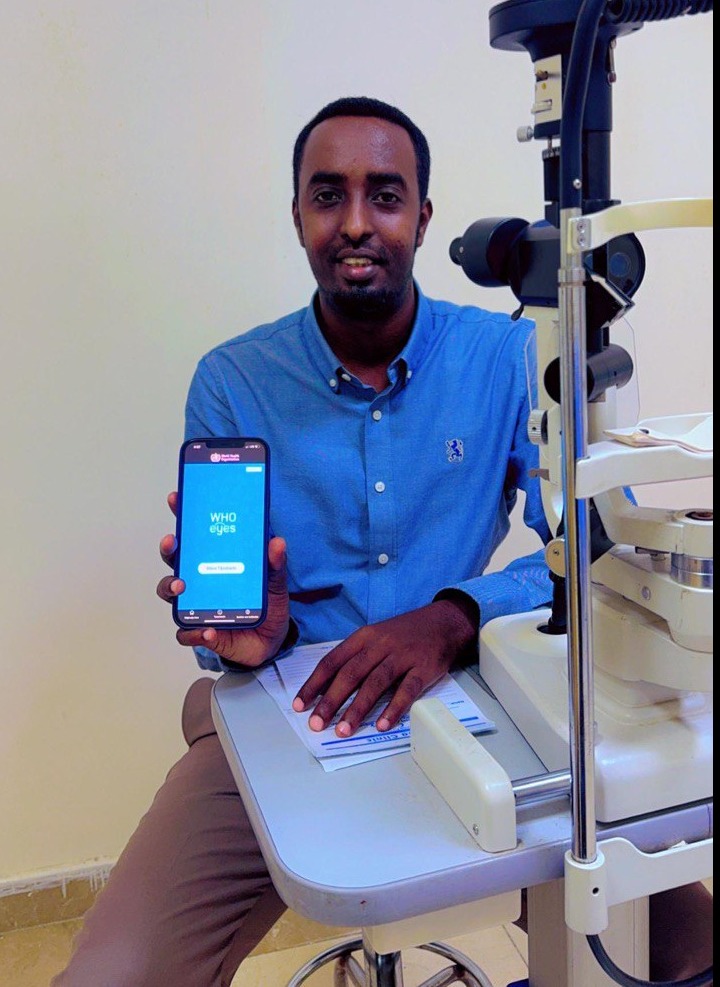
Today, he encourages families to check their eyesight and identify early signs of vision impairment. He also collaborates with local health platforms to spread awareness and plans to promote the app through social media videos. “It is easy to use and very effective,” he explains. “In a country like Somalia where awareness is lacking, this app could change lives.”
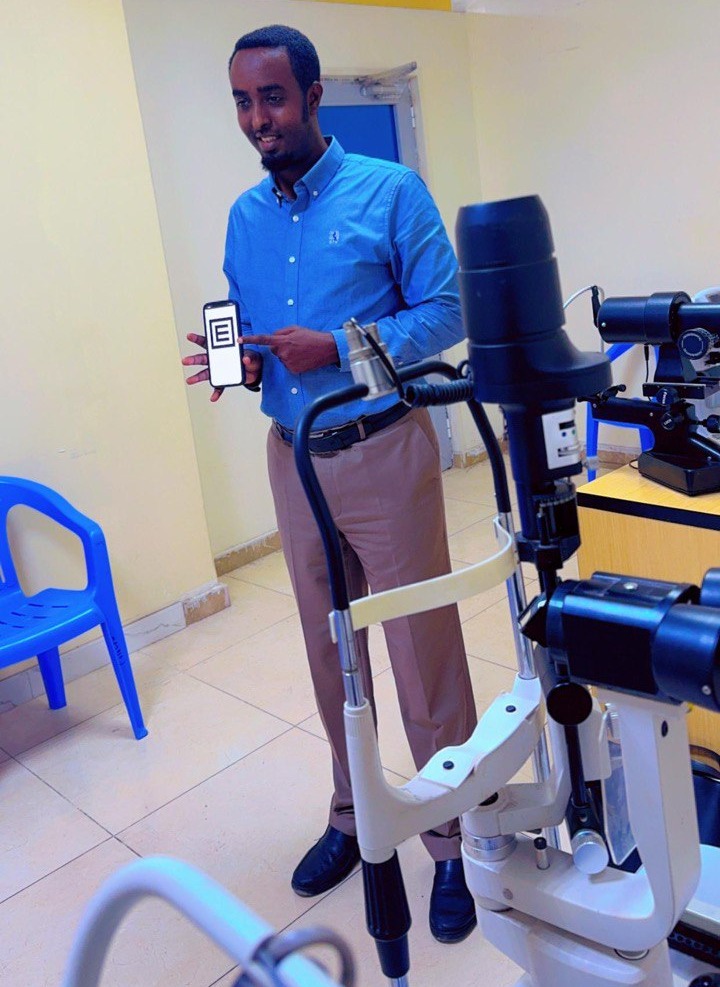
One of the biggest obstacles, he says, is a widespread lack of knowledge. Many parents and teachers don’t realize that children might be struggling with their vision. Over the years, Dr Kalif has screened hundreds of schoolchildren and discovered preventable conditions going unnoticed. He recalls a 17-year-old girl who lived with blurred vision in one eye her whole life. “She told me, ‘I thought everyone’s left eye was like this,’” he says. “When she smiled after getting her glasses, that’s the moment that keeps me motivated."
But Dr. Kalif’s ambition reaches beyond individuals—he is focused on transforming the entire system. He played a key role in setting up Somalia’s first optometry training program, which celebrated its first group of graduates in 2024. He is also teaming up with the National eye health coordinator of the Ministry of Health and the WHO country office in Somalia to complete the first ECSAT (Eye care situation analysis tool) and prepare a national eye health strategy. His goal is to link Somali professionals with global training programs to gain expertise without always needing help from outside specialists.
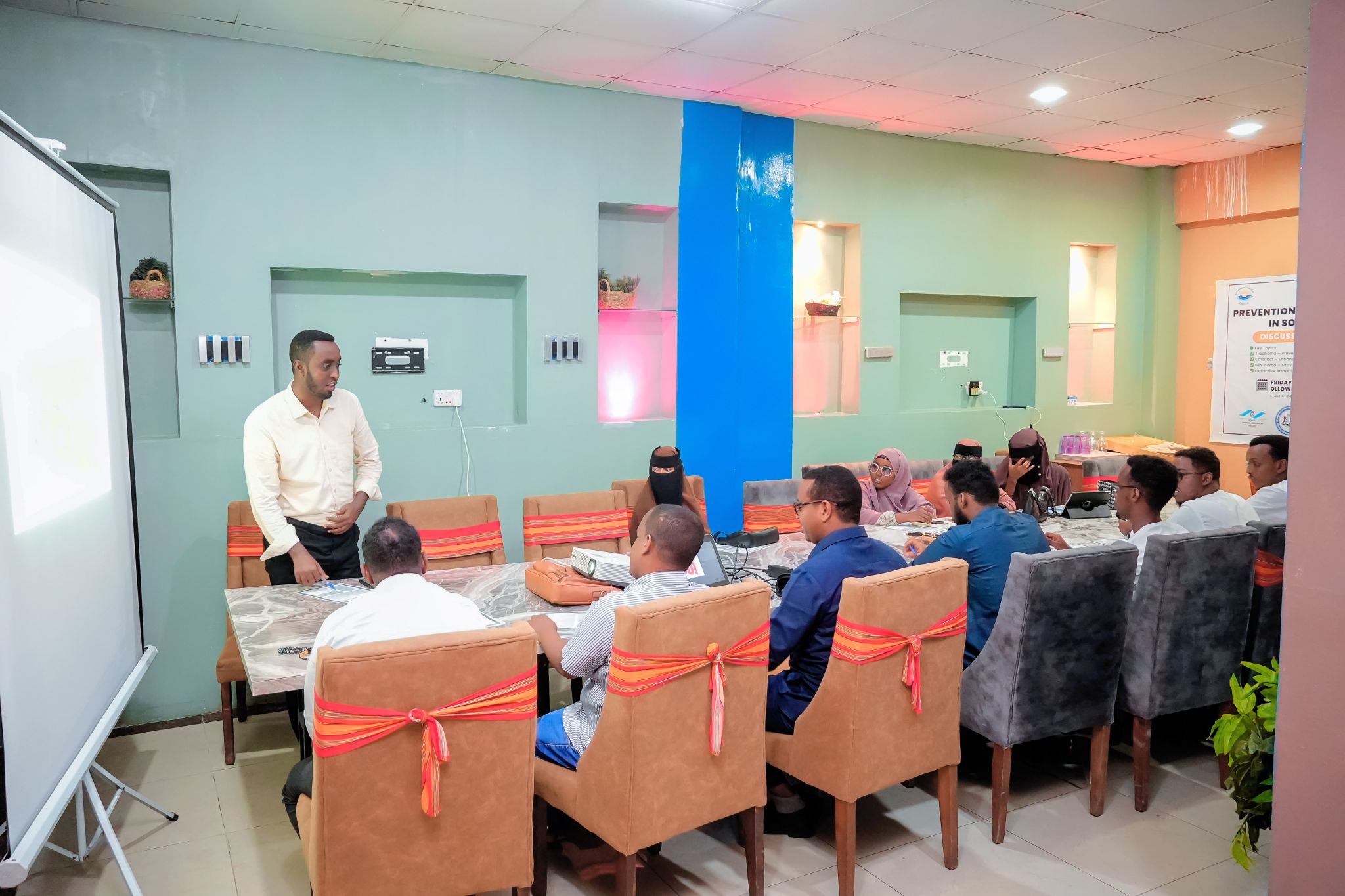
In a country where healthcare is often limited and vision care is rarely prioritized, Dr Kalif stays optimistic. “Vision changes lives,” he explains. “I’ve watched people go from being jobless to providing for their families all because they could see again.”
His vision for the future is simple. “Eye care everywhere in Somalia. That’s my life’s mission”.
Note:
About optometry
Optometry is a healthcare profession that is autonomous, educated, and regulated (licensed/registered), and optometrists are the primary healthcare practitioners of the eye and visual system who provide comprehensive eye and vision care, which includes refraction and dispensing, detection/diagnosis and management of disease in the eye, and the rehabilitation of conditions of the visual system. According to the World Council of Optometry, an optometries holds a bachelor’s degree or higher from a tertiary-level educational institution.
About WHOeyes
WHOeyes is a free, population-facing mobile software application to check near and distance visual acuity. Regular visual acuity checks can ensure that vision impairment is identified at the earliest so that you can take action to continue enjoying your sight. You can learn more and download it here.
